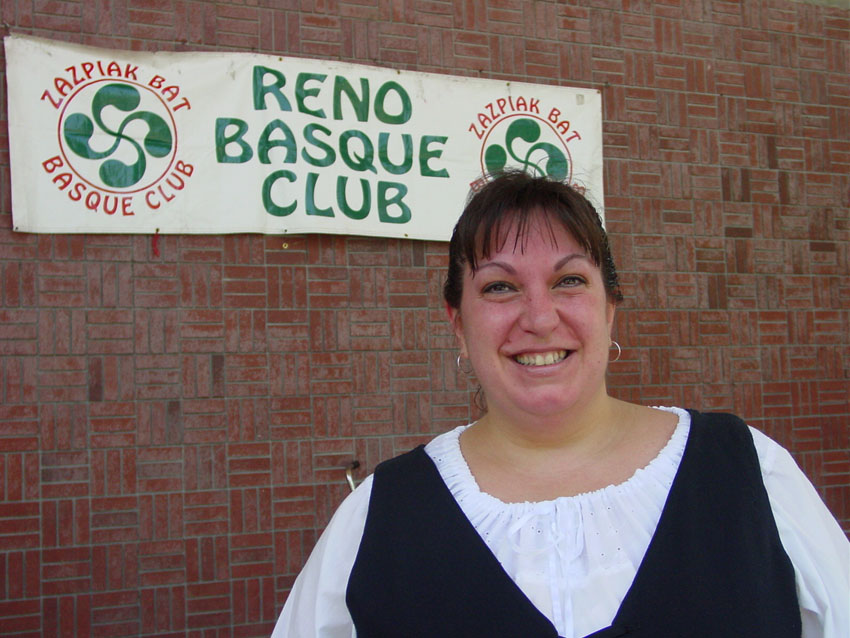Joseba Etxarri. She is easy to talk to, not just because of her personality, but also because she speaks the four languages of the Basques, Basque, Spanish, French and English. Born in Buffalo, Wyoming 50 years ago, this Basque-American is an example of the best tradition cultivated by generations of Basque immigrants, renewed, updated at the service of academics and researchers that come from all over the Diaspora and the Basque Country to make use of the best and most complete Basque Studies Library outside of the Basque Country.
-What’s it like to work at the Center for Basque Studies at the University of Nevada, Reno?
For any Basque, or anyone interested in learning about, or deepening their knowledge about the Basques, it is a luxury. Thanks to the vast library and archival holdings, and the work done here by researchers from around the world, I’m in an environment that is worth getting to know and experiencing. I have learned a lot since I have been here and have been given the privilege of meeting, and getting to know, very interesting people from outstanding academics, to renowned figures in the worlds of Basque culture and politics. It has been a privilege to work in a place like this.
-How would you describe the Basque Studies Library in Reno?
The Center was created in 1967, and it is characteristically unique. The Basque library holds more than 50,000 volumes and documents and is part of the North American University System. Every year we welcome dozens of students and professors, the majority from the Basque Country, but many from other parts of the world as well who are researching, or writing theses on various aspects of Basque culture. We aim to be a reference or an instrument for them. The Center administers a Ph.D. in Basque Studies and publishes an annual newsletter on its activities. We also publish books on Basque topics, both originally written in English or in translation. In 2007, we moved to the Mathewson-IGT Knowledge Center, a smart building that we were very fortunate to be able to call home.
-This year is the 40th anniversary of the publication of Amerikanuak which is considered a sort of Bible in the world of Basque Diaspora Studies.
We have always maintained our connection to Nevada and the reality of Basque emigration to the West, as well as to the rest of the world. Amerikanuak was published in 1975, by William Douglass who was the coordinator of the Center for more than 30 years, and Jon Bilbao who started the library collection himself, who passed away in 1994. Nevertheless, the book today, forty years later, still serves as a reference for anyone wants enter the field.
-Reno also has a Basque club, the Zazpiak Bat Basque Club that you were also president of. You were also on the board of your hometown club in Buffalo.
I have been a member of Zazpiak Bat since I moved here from Buffalo in 1997, and had the privilege of serving on the boards of both clubs in different capacities, including being elected twice as Zazpiak Bat’s president. I also directed the Zaharrer Segi dancers in Buffalo and the Zazpiak Bat dancers here for 20 years all tolled. I grew up in the Basque culture at home and was exposed to customs and Basque traditions that are today a part of me. I am still a member of both clubs, although no longer on the board, but my daughters Ezti and Oihana both dance with Zazpiak Bat.






 Send to a friend
Send to a friend Add comment
Add comment








